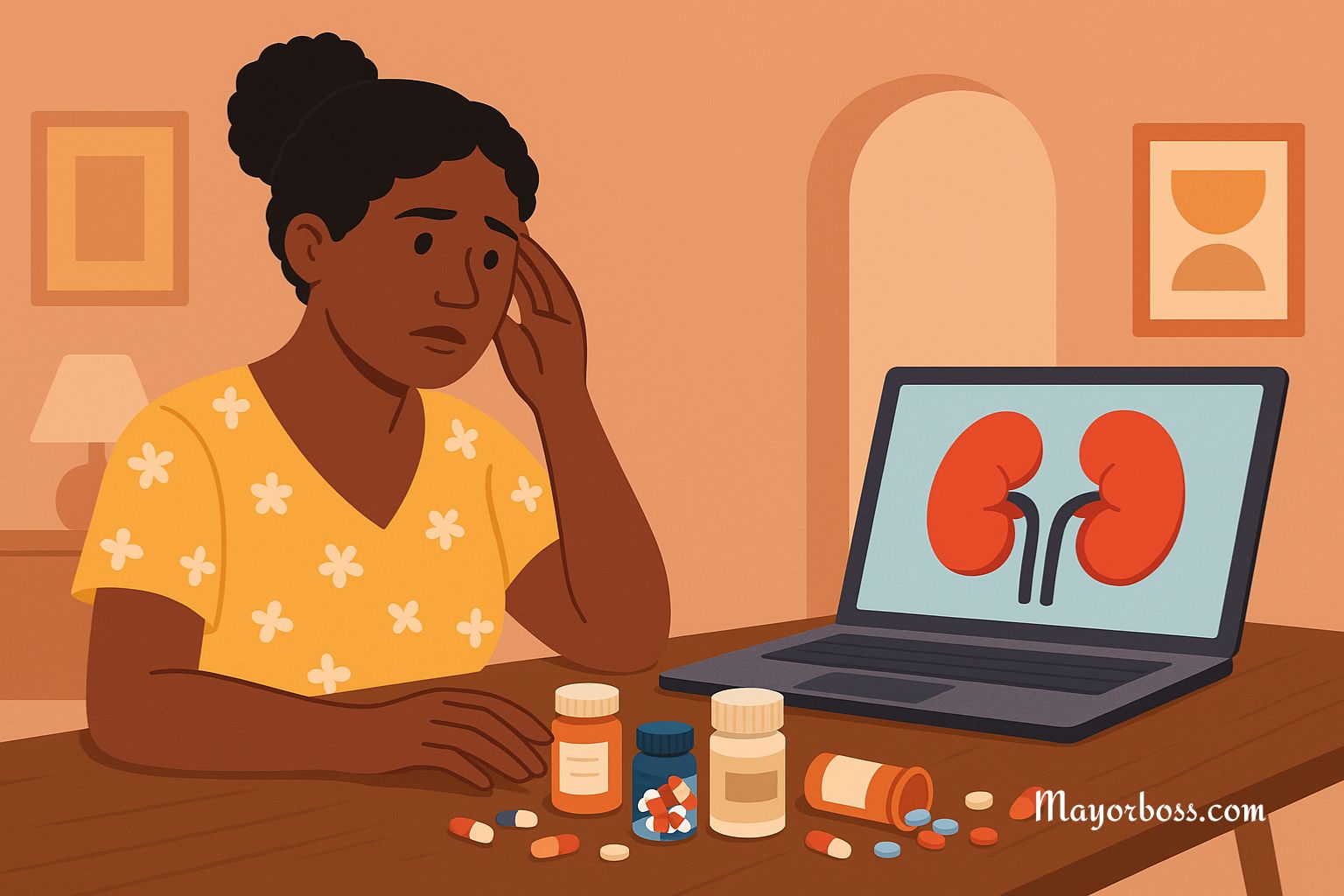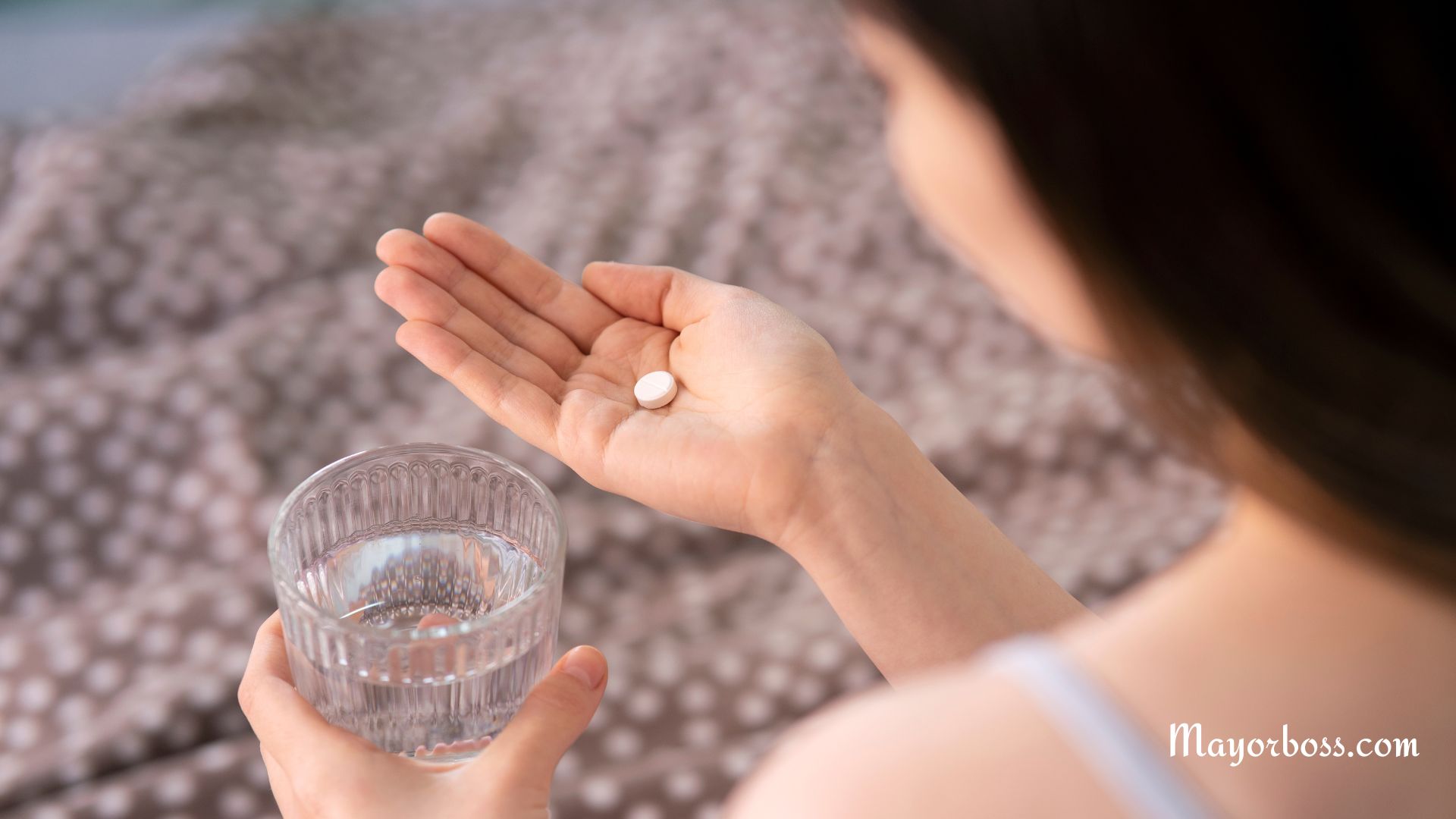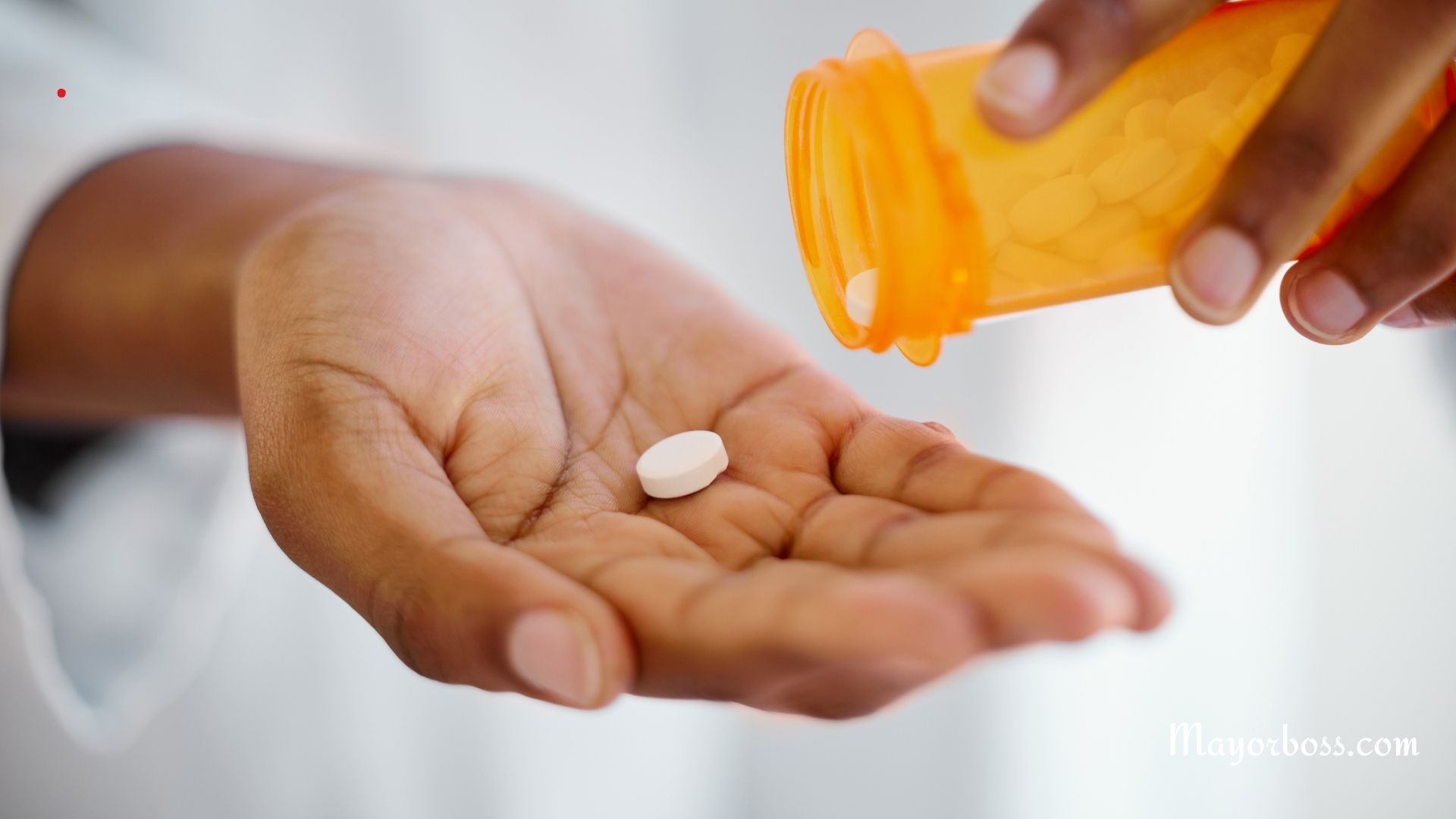These Common Medications May Be Damaging Your Kidneys
Your kidneys work hard every day to filter waste, balance fluids, and support overall health. But what many people don’t realize is that certain medications—even common ones—can quietly strain or harm the kidneys over time. If left unchecked, this damage can lead to reduced kidney function or even kidney failure.
Let’s examine the medications that can impact your kidneys and learn how to protect yourself.
Happy reading 🙂!

1. Over-the-Counter Pain Relievers (NSAIDs)
Nonsteroidal anti-inflammatory drugs (NSAIDs) like ibuprofen (Advil, Motrin), naproxen (Aleve), and even aspirin can damage the kidneys if used too often or at high doses. These drugs reduce blood flow to the kidneys, especially when the body is dehydrated or already under stress.
Risks increase if you:
- Have high blood pressure
- Are older than 60
- Already have kidney disease
- Take them daily for chronic pain
What to do instead: Use the lowest effective dose for the shortest time. If you need long-term pain control, ask your doctor for safer options.
2. Proton Pump Inhibitors (PPIs)
These are drugs used to treat acid reflux and heartburn. Examples include omeprazole (Prilosec) and esomeprazole (Nexium). While effective, long-term use of PPIs has been linked to a higher risk of chronic kidney disease and acute kidney injury.
How they cause harm: The exact reason is still being studied, but some experts believe PPIs can cause inflammation in the kidneys (called interstitial nephritis), which may lead to permanent damage if not treated early.
What to do: If you take PPIs regularly, talk with your doctor about whether they are still necessary. You may be able to switch to safer alternatives or reduce your dose.
3. Certain Antibiotics
Some antibiotics, especially in large doses or when used for a long time, can be toxic to the kidneys. Examples include:
- Gentamicin and tobramycin (aminoglycosides)
- Vancomycin
- Ciprofloxacin and levofloxacin (fluoroquinolones)
How they affect the kidneys: These antibiotics can injure kidney cells, especially in people with preexisting kidney conditions.
What to do: Always take antibiotics exactly as prescribed. Let your doctor know if you have kidney problems or experience symptoms like reduced urine output or swelling.
4. Diuretics (Water Pills)
These are used to reduce fluid buildup in conditions like high blood pressure, heart failure, or leg swelling. While helpful, diuretics like furosemide (Lasix) or hydrochlorothiazide can sometimes lead to dehydration and disturb the balance of electrolytes. This puts extra stress on the kidneys.
Signs of trouble: Feeling lightheaded, confused, or very tired may point to low blood pressure or kidney issues.
What to do: Stay well hydrated. Your doctor should monitor your kidney function and adjust the dose as needed.
5. ACE Inhibitors and ARBs
These blood pressure medications—such as lisinopril, enalapril, or losartan—are actually protective for the kidneys in many patients, especially those with diabetes. But in some cases, especially if combined with diuretics or NSAIDs, they can reduce kidney function.
What to watch for: Sudden drops in kidney function or rises in potassium levels.
What to do: If you take these medications, routine blood tests should be done to track your kidney health.
6. Supplements
Many people believe that supplements are always safe because they are “natural.” However, certain vitamins, herbs, and nutritional products can be harmful to your kidneys—especially when taken in high doses or without medical supervision.
Supplements that may harm kidneys include:
- Vitamin C (in high doses): Can increase the risk of kidney stones.
- Vitamin D (excess amounts): May raise calcium levels in the blood, stressing the kidneys.
- Herbal remedies: Such as aristolochic acid, parsley root, licorice root, or wormwood have been linked to kidney injury.
- Protein powders and creatine: When overused, these can increase waste buildup and stress filtration in the kidneys.
Why: Supplements aren’t regulated as strictly as medications, and some may contain hidden harmful substances or interact with prescription drugs.
What to do: Always inform your healthcare provider about any supplements you take. Avoid “kidney detox” products or herbal cleanses unless your doctor approves them.
7. Lithium
Used to treat bipolar disorder, lithium requires careful monitoring. Over time, it can lead to chronic kidney disease if blood levels are too high or not closely tracked.
Warning signs: Frequent urination, increased thirst, and changes in mood or alertness may point to lithium-related kidney damage.
What to do: Regular blood tests are essential to check lithium levels and kidney function.
8. Laxatives and Antacids with Magnesium or Phosphate
Certain over-the-counter products—especially those containing magnesium or phosphate—can be harmful to people with kidney disease. The kidneys may not be able to clear excess minerals, which can lead to dangerous imbalances in the body.
Watch out for: Overuse of laxatives like milk of magnesia or phosphate-based bowel cleansers before colonoscopies.
What to do: Avoid using these products frequently unless recommended and monitored by a doctor.
How to Protect Your Kidneys
- Review your medications: Ask your doctor or pharmacist if any of your medications are known to affect the kidneys.
- Stay hydrated: Dehydration worsens kidney stress, especially when taking NSAIDs or diuretics.
- Get regular blood and urine tests: These tests can detect kidney problems early.
- Avoid combining risky drugs: For example, using NSAIDs with ACE inhibitors and diuretics is known as a “triple whammy” and can sharply reduce kidney function.
- Tell your doctor about all medications and supplements: Some herbs and vitamins can also strain the kidneys.
When to Seek Help
Contact a healthcare provider if you notice:
- Swelling in your legs or face
- Sudden fatigue
- Shortness of breath
- Changes in urination (less, foamy, or bloody)
- Confusion or nausea
These may be signs your kidneys are struggling and need medical attention.






